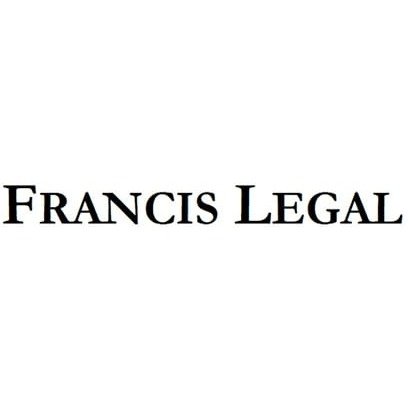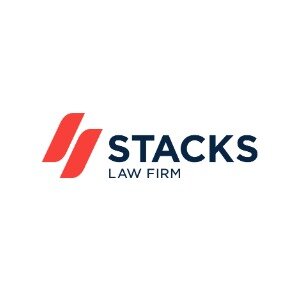Best Sanctions & Export Controls Lawyers in Hornsby
Share your needs with us, get contacted by law firms.
Free. Takes 2 min.
List of the best lawyers in Hornsby, Australia
About Sanctions & Export Controls Law in Hornsby, Australia
Sanctions and export controls are important aspects of Australian law that regulate the transfer of goods, technology, services and financial resources across international borders. In Hornsby, as in the rest of Australia, individuals and businesses must comply with federal rules set by the Australian Government. These laws are designed to uphold national security, support international obligations, prevent illegal trade, and ensure goods do not end up in restricted destinations or hands. Sanctions can cover countries, individuals, or organizations, and export controls may apply to specific goods or technologies, especially those with military or dual use. Non-compliance can result in serious legal consequences, making understanding these laws essential for businesses and private individuals alike.
Why You May Need a Lawyer
Navigating the complex area of sanctions and export controls can be challenging. Individuals and companies may require legal assistance in several situations, such as:
- If you are exporting goods or technology and want to ensure compliance with relevant controls and sanctions.
- If you have received a notice of investigation or prosecution for a possible breach of sanctions regulations.
- If your goods have been detained or your business transactions have been blocked due to suspected sanctions violations.
- If you are dealing with international partners or clients and need advice on the legality of certain transactions.
- If you are unsure about classification of your exports, import licensing, or end-use restrictions.
- If you need to apply for a permit or exemption for specific exports.
- If you face financial penalties or asset freezes linked to sanctions enforcement.
A lawyer with expertise in sanctions and export controls can help protect your rights, clarify your obligations, and reduce your risk of costly mistakes.
Local Laws Overview
Australian sanctions and export control laws are enforced within Hornsby under federal jurisdiction, primarily the Charter of the United Nations Act 1945, the Autonomous Sanctions Act 2011, and the Customs Act 1901. Key aspects relevant to residents and businesses in Hornsby include:
- Prohibition on exporting certain goods and technologies to sanctioned countries or entities, unless an exemption applies.
- Controls on the supply of services and financial resources to people or entities on the sanctions list.
- Licensing requirements for dual-use goods and strategic items regulated by the Defence and Strategic Goods List (DSGL).
- Requirements to conduct due diligence in international transactions to avoid inadvertent breaches.
- Severe penalties for violations, including fines and imprisonment.
- Obligations for businesses to screen customers and transactions against up-to-date sanctions lists.
These rules are applicable regardless of the size of your business or the value of the activity and are strictly enforced.
Frequently Asked Questions
What are sanctions and export controls?
Sanctions are legal measures that restrict trade and financial transactions with specific countries, entities, or people. Export controls regulate the transfer of goods, technology, or services that may have security, military, or dual-use applications.
Who enforces sanctions and export controls in Hornsby?
The Australian Government enforces these rules through the Department of Foreign Affairs and Trade (DFAT), the Australian Border Force (ABF), and the Australian Federal Police (AFP).
What are the consequences of breaching sanctions or export controls?
Penalties may include hefty fines, seizure of goods, loss of licenses, and imprisonment, depending on the severity of the breach.
How can I check if a country or person is on the sanctions list?
You can review the latest sanctions lists published by DFAT. Lawyers and compliance experts can help you interpret these lists.
Do sanctions and export controls apply to digital goods or software?
Yes, the laws apply to physical goods, technology transfers, software, and intangible intellectual property.
Is personal travel affected by export controls?
While travel itself may not be restricted, carrying controlled goods or technology into a sanctioned destination can cause legal issues.
What is the Defence and Strategic Goods List (DSGL)?
The DSGL lists goods and technologies that are subject to export controls for security or military reasons. Exporting items on this list often requires a permit.
Do small businesses need to comply with sanctions and export controls?
Yes, all Australian businesses and individuals must comply, regardless of their size or the scale of their operations.
Can I apply for an exemption or permit to export controlled goods?
Yes, in some cases you can apply for a license or exemption from the relevant government authority. Legal advice can help you understand your options.
What should I do if my goods are detained or my transaction is blocked?
Seek legal advice immediately to understand your rights, the reasons behind the action, and your options for appeal or resolution.
Additional Resources
If you require more information or support, the following resources may be helpful:
- Department of Foreign Affairs and Trade (DFAT) - Responsible for Australia’s sanctions regime and provides guidance on compliance and current sanctions.
- Australian Border Force (ABF) - Enforces customs and export controls at the border.
- Australian Securities and Investments Commission (ASIC) - Offers information on due diligence and compliance for businesses.
- Attorney-General’s Department - Oversees the Defence and Strategic Goods List and export permits.
- Legal Aid NSW - May provide assistance with sanctions or export control issues for eligible individuals.
- Professional legal associations - Such as the Law Society of New South Wales, which can help you find accredited lawyers with experience in this field.
Next Steps
If you believe you may be affected by sanctions or export control laws, or if you are unsure about your legal obligations, consider the following steps:
- Identify the nature of your goods, services, or transactions and whether they are subject to any controls or restrictions.
- Review your existing contracts, business partners, and supply chains for compliance risks.
- Seek legal advice from a lawyer with expertise in sanctions and export controls to clarify your position.
- Stay informed about updates to laws, lists, and government guidance, as regulations can change quickly in response to global events.
- If under investigation or facing enforcement action, contact a lawyer immediately to protect your rights and develop a response strategy.
By acting proactively and obtaining professional advice, you can reduce legal risks, maintain compliance, and ensure your business activities in Hornsby are secure and lawful.
Lawzana helps you find the best lawyers and law firms in Hornsby through a curated and pre-screened list of qualified legal professionals. Our platform offers rankings and detailed profiles of attorneys and law firms, allowing you to compare based on practice areas, including Sanctions & Export Controls, experience, and client feedback.
Each profile includes a description of the firm's areas of practice, client reviews, team members and partners, year of establishment, spoken languages, office locations, contact information, social media presence, and any published articles or resources. Most firms on our platform speak English and are experienced in both local and international legal matters.
Get a quote from top-rated law firms in Hornsby, Australia — quickly, securely, and without unnecessary hassle.
Disclaimer:
The information provided on this page is for general informational purposes only and does not constitute legal advice. While we strive to ensure the accuracy and relevance of the content, legal information may change over time, and interpretations of the law can vary. You should always consult with a qualified legal professional for advice specific to your situation.
We disclaim all liability for actions taken or not taken based on the content of this page. If you believe any information is incorrect or outdated, please contact us, and we will review and update it where appropriate.












